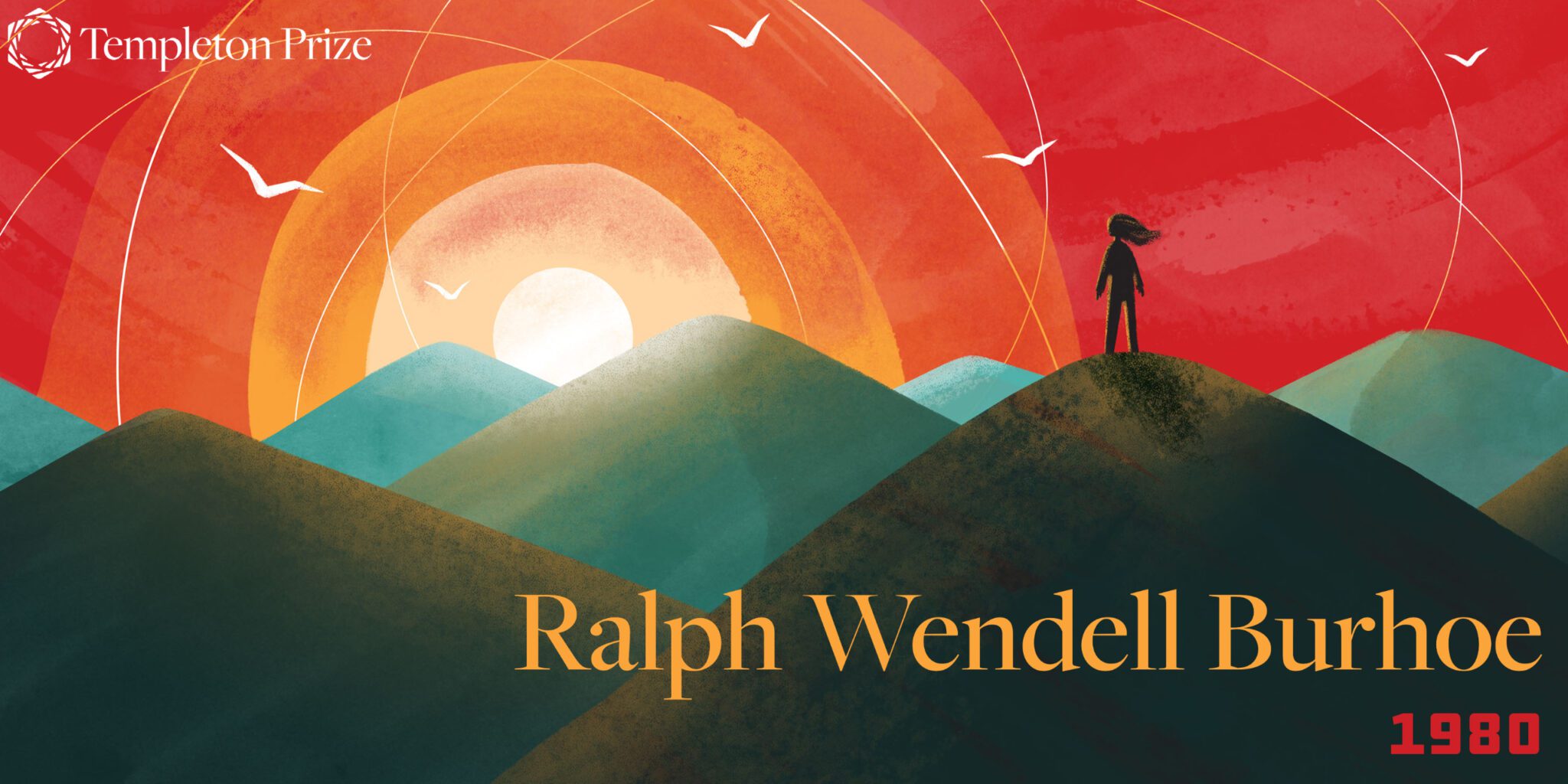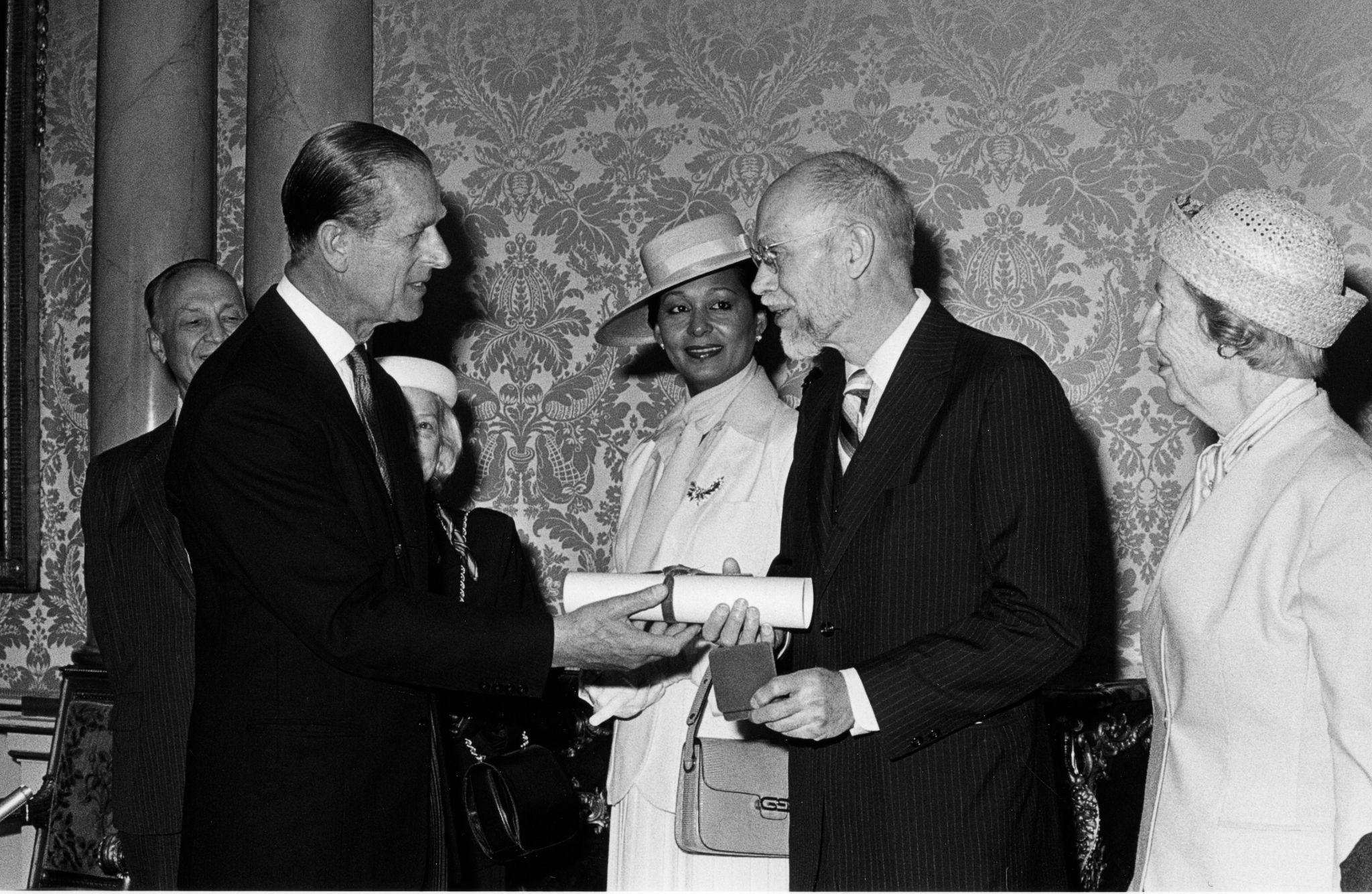In 1973, the first Templeton Prize was given to Mother Teresa. In 2023, we celebrate the 50th anniversary of this award. Over the next 52 weeks, we will highlight each of our laureates and reflect on their impact on the world. From humanitarians and saints to philosophers, theoretical physicists, and one king, the Templeton Prize has honored extraordinary people. Together, they have pushed the boundaries of our understanding of the deepest questions of the universe and humankind’s place and purpose within it, making this (we humbly think) the world’s most interesting prize.
Ralph Wendell Burhoe is remembered as a scientist, theologian, and reformer who devoted much of his life to reconciling the disciplines of religion and science. He founded the influential journal Zygon, which allowed distinguished scientists to write about their discoveries related to God and theology as it pertained to their own research.
Burhoe, the first American recipient of the Templeton Prize, was born in Somerville, Massachusetts in 1911. He attended both Harvard University and Andover Newton Seminary but did not complete his degree at either institution. Burhoe later returned to Harvard as an employee of the Blue Hill Meteorological Observatory and began his career in scientific research. He became an executive officer of the American Academy of Arts in 1947 and went on to teach theology and sciences at Meadville Theological School in Chicago for 10 years.
Harboring a strong belief that science and religion do not exist in conflict with one another, Burhoe developed a theoretical framework that demonstrated the ability of science to reinforce the wisdom of traditional religion. The framework explained how religion emerged within the evolutionary process, and included the concept of God as demonstrated through the processes of natural selection. Burhoe’s work on how traditional religion could be translated into serious scientific theories was warmly received by many leading scientists of his time.
-

Ralph Burhoe receiving the Templeton Prize from HRH Prince Phillip
Ralph Wendell Burhoe was awarded the Templeton Prize in 1980 for his passionate investigation into the similarities and differences between religion and science. Prince Philip, Duke of Edinburgh, presented the award at Buckingham Palace in London. Both Sir John Templeton and the Right Honorable Lynden O. Pindling delivered speeches at the ceremony.
“This year the recipient is Dr. Ralph Wendell Burhoe who was the founder and editor of the most influential journal on science and religion called ‘ZYGON’. The name of the journal was taken from that nerve stem which connects two parts of the brain. All of you will benefit from becoming readers of this learned journal. Distinguished scientists from many disciplines and nations write in this journal their discoveries about God, not from ancient scriptures but from research in their own sciences.
Dr. Burhoe is not only a scientist and a theologian; he is also a visionary and a missionary. He is a missionary for a new reformation, a reformation which may be far more profound and revolutionary than the reformation led by Martin Luther.”
– John M. Templeton
Dr. Ralph Burhoe has been one of those prominent men who have, against the tide of popular thought and trends, sought to establish a new and vital role for religion in the world of today. At a time when conversation between religion and science was unfashionable and almost non-existent, Ralph Burhoe, in his writings, by his organizational and promotional skills, and through his great personal contact and rapport with both scientists and theologians, has been at the centre of a growing conversation, international in scope, of momentous importance.
It seems to me that, in the last two decades, no other person in the world has had the cumulative impact in this area on both professional religionists and scientists as had Dr. Burhoe.
His contribution to progress in religion is found in the fact that he, more than any other person now living, has helped turn modern societies from the growing separation between science and religion and has helped some of the world’s top scientists and theologians move into dialogue again.”
– Rt. Hon. Lyden O. Pindling
Still Curious?
Learn more about Ralph Wendell Burhoe

